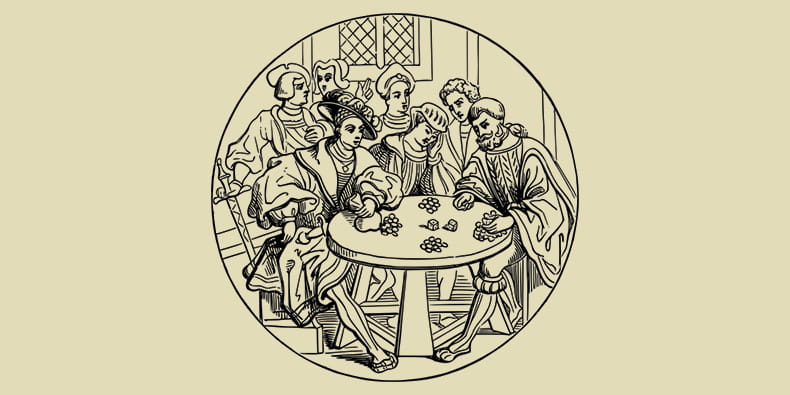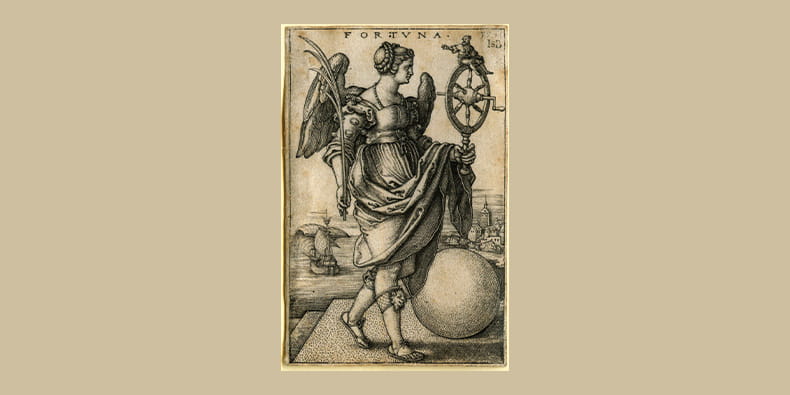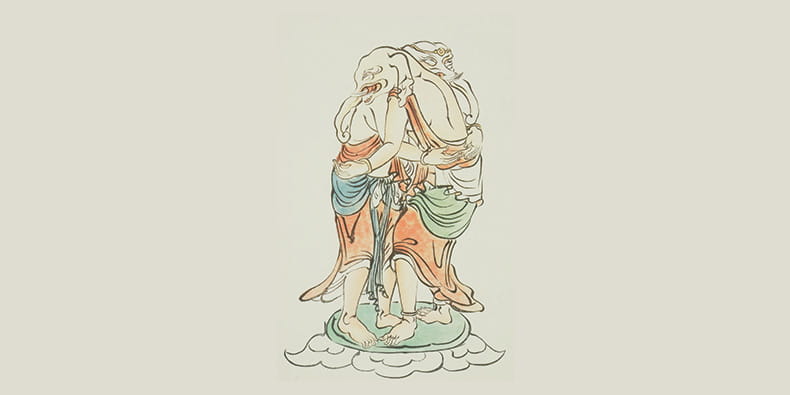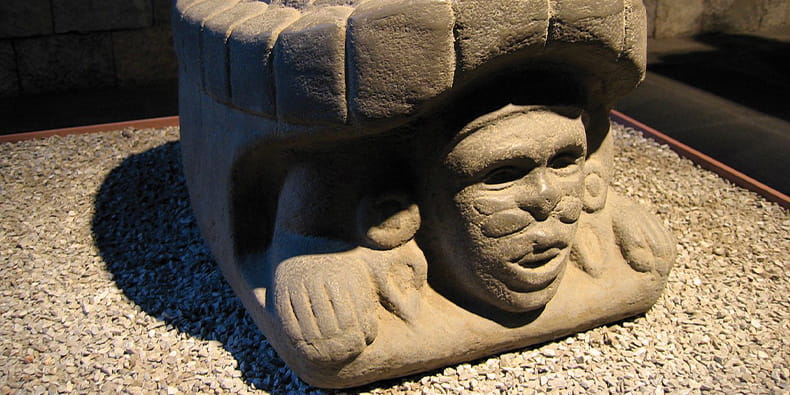Betting Gods – The Realm of Fortune
Are you interested in the ancient history of gambling and its fascinating practices? Then you will enjoy learning about the incredible betting gods. Throughout the ages, gamblers have placed their faith in various deities for success and even today, many hope that Lady Luck will bring them good fortune. Our blog will go through some of the most popular gods of gambling, their intriguing stories and how they are worshipped. Receive the blessing of the gods, and may good fortune grace your future games!
Ancient Gambling History and the Gods of Luck
Before talking about the gods, it would be wise to take a brief look at the history of gambling. Gambling has been around since the dawn of man, with evidence of its existence dating back to Mesopotamia and ancient China. Mesopotamia’s precursor to dice, the Astragali bones, were also used as tools to communicate with the gods. Ancient people would roll the dice and find answers from the results.

The myths themselves would also often feature gods and mortals making bets and playing gambling games, usually with their lives at stake. Although even in those times, gambling was regulated with various gambling laws, it was a common pastime, and the roots of many modern games such as baccarat and poker can be traced back to these ancient eras.
In those days, long before they began developing elaborate gambling strategies, people would rely on the gods’ powers for all sorts of things. Some of the most revered ones were the gods of luck and fortune, acting as a god of gambling. Whether their worship involved sacrificial rituals, elaborate festivals or simple prayers, these gods were believed to be truly powerful.
The Pantheon of the Gods of Gambling
As mentioned, the god of gambling is usually also part of the gods of luck and good fortune. This means that aside from gamblers, regular people would also put their faith in them for good bounties during a hunt or sales for merchants. Almost every religion has one and you can find a list with some of the more famous ones below:
- Hermes (Greek God of Trickery and Travelers)
- Fortuna (Roman Goddess of Fortune)
- Kangiten (Japanese Buddhist God of Luck)
- Macuilxochitl (Aztec God of Games)
- Thoth (Egyptian God of Wisdom)
- Nezha (Chinese God of Gambling)
- Nohoipili (Navajo Gambling God)
- Lakshmi (Hindu Goddess of Prosperity)
- Gefjon (Norse Goddess of Prosperity)
- Seven Lucky Gods (Japanese Gods of Wealth)
Note that while they may be gods of fortune, luck itself is fickle and you will not be guaranteed victory. That is why it is a good idea to be thoroughly familiar with the rules of roulette and other gambling games and to be prepared for all outcomes. Fortune may favour the bold, but it pays to be prepared.
Hermes – The Multi-Talented Trickster God
First on our list of betting gods is the famous trickster Hermes. Often depicted holding a winged staff with two snakes, the caduceus, and tiny wings on his ankles, Hermes is the god of travellers, athletes, thieves, merchants, messengers and many more. He escorts souls to the underworld and acts as a messenger for the gods due to his remarkable speed. With multiple appearances in games, comics and movies, he is undoubtedly one of the most famous gods of gambling.
As the god of trickery, he would often outwit and play tricks on the other gods, either helping humans in the process or for his personal gain. However, he has also invented the dice, known as knucklebones. Dice are a significant part of Greek mythology, as Zeus, Poseidon, and Hades split the world after playing a game of dice.
Gamblers know him as “the bringer of good luck” and often pray to Hermes before a game to receive his blessing and outsmart their opponents. Although he isn’t worshipped to the same extent as in the past, Hermes is always kept in mind by players before they play their favourite online roulette games.
Fortuna – The Roman Goddess of Fortune
The Romans were avid gamblers despite gambling being banned in Rome, which would lead to the invention of chips to avoid real-money gambling. However, on the 24th of June, for an entire day, people from all over the empire would gather to drink wine, play gambling games and worship their goddess of luck, Fortuna, in a giant festival known as the Fors Fortuna.

Fortuna was initially known as the minor Greek goddess of prosperity Tyche, finding widespread popularity among the Romans. Many slaves and commoners would worship the goddess as they believed good luck could turn their lives around, similar to popular rags to riches stories such as It Could Happen to You. However, Fortuna could be very fickle.
As one of the gods of luck, Fortuna embodies all aspects of it and has four alter egos: good luck, bad luck, fickle fortune, and doubtful fortune. The Wheel of Fortune symbolises her fickleness as it would always turn and change a person’s life. This symbol would even serve as the inspiration for the popular Wheel of Fortune game.
Although most people know only her good luck version, Fortuna Bona, Fortuna is undoubtedly the most recognisable among the gods of gambling. Even today, people pray to Lady Luck and hope her wheel can change their lives for the better.
Kangiten – Elephant God of Luck
The far east also has its gods of gambling, such as Kangiten. Known by many names, including Binayaka and Shoten, Kangiten is the Buddhist equivalent of Ganesha. Legends claim he was once a demonic creature whose rage would be quelled by his female counterpart. Thus, his reputation in Japan is mixed, as while he can grant impossible wishes to anyone, he is also highly volatile, giving immediate success at the cost of future tragedy.

Compared to Ganesha, Kangiten is considered too sacred to be seen publicly. His images in temples are hidden, and monks perform their rituals in secret. Despite his volatile nature, many famous historical figures in Japan worshipped and are believed to have benefited from Kangiten, such as the great unifiers Toyotomi Hideyoshi and Tokugawa Ieyasu.
Kangiten’s worshippers include many gamblers, who relied on him to grant them good fortune and success. Much like gambling itself, it can be risky to ask Kangiten for help, but there is a chance you will receive incredible blessings. Offerings to this god of gambling are also easy to come by, as they include radishes and, his favourite, sweets.
Macuilxochitl – Five Flower God of Games
The Aztecs would believe in various gods throughout their lives, each governing some aspect of life. Macuilxochitl (Five Flower) was a god of luck adopted from the Toltec civilisation and is part of the Five Gods of Excess. These gods would govern various forms of pleasure such as drinking and gambling, along with a warning not to indulge in excess.

Macuilxochitl served as an early form of responsible gambling, as it was believed those who gambled in excess would be severely punished. However, aside from his vengeful nature and gambling oversight, Maculxochitl was also the god of games, dancing and writing. The Aztecs would pray to him before any game, whether that was gambling or football.
Macuilxochitl was also an essential part of the Aztec board game patolli. A particular area was reserved for the god of games, where players placed their treasures if they got a score of zero. These treasures were their stakes and consisted of blankets, gold or even a person’s freedom. The winner of the game received these objects as a gift from the god. Due to the high stakes, the game was never played casually.
Thoth – Gambling with the Moon
Among the betting gods, the Egyptian god of gambling is certainly one of the most surprising ones. Thoth, known as the god of wisdom, is usually associated with order and justice, making him one of the most important and fair gods. Perhaps it is his fairness that made ancient Egyptian gamblers seek his help.
Much like Hermes, Thoth was a very busy god, credited with inventing the hieroglyphs, acting as a scribe for the gods, judging the hearts of the deceased etc. He is also a moon god of magic and science and is frequently depicted with his wife Ma’at, the goddess of balance, and the sun god Ra sailing through the skies on Ra’s solar ship.
With such a busy schedule, you may wonder how he became associated with gambling? According to one story, Thoth helped the goddess Nut conceive children by gambling with the moon itself. He gambled with the moon for five days, creating the 365-day calendar, and won, allowing Nut to give birth. Thoth may not be one of the gods of luck, but he is the god of wit, which can be just as important to gamblers.
Nezha – God of Children and Lotteries
Going back to the east, we have the Chinese god of gambling, Nezha, based on the yaksha Nalakubar and the child-god Krishna. When he was born, his father, Li Jing, attempted to kill him, thinking he was a demon. After many adventures, Nezha was revered as a hero for slaying demons on Earth and protecting people, including taking his own life to stop a flood.
Armed with fire wheels and a fire spear, Nezha acts as a god of protection, specifically children. Parents would pray to Nezha for their children to grow up strong and healthy, which has earned him widespread popularity. His popularity has resulted in numerous depictions across video games, movies and even slots, which can be found at some of the newest online casinos.
Nezha is also often worshipped as one of the gods of fortune, believed to reveal winning lottery numbers. Whether he appears in slot games or helps gamblers win the lottery, Nezha is a god bound to bring good fortune to anyone.
Nohoipili – The Greedy Gambling God
Not all gods of gambling are necessarily benevolent, as some serve as cautionary tales for the dangers of overconfidence and excessive gambling. Nohoipili is the Navajo god of gambling who came to Earth to teach people the rules of gambling games. However, he would soon become greedy, beating tribes at gambling games and enslaving them.

Eventually, people were forced to build a home for Nohoipili to escape slavery, which got the attention of the other gods. They gave a random man gambling powers and dressed him in similar attire to Nohoipili. Nohoipili was beaten and forced to return to the sky, eventually getting the chance to rule over his own people – the Mexicans, which were considered enemies of the Navajo.
Nohoipili serves as a great reminder that even the gods of fortune are not unbeatable, so a person should never be overconfident when gambling. Even the most famous gamblers know their limits and prepare strategies to minimise their losses. Nohoipili may be an evil god, but his tale should always be remembered by those who want to enjoy gambling to its fullest.
Lakshmi – The Most Powerful Goddess of Luck
Lakshmi may be the most powerful among the betting gods, as even the other Hindu gods are affected by her abilities. As the wife of Vishnu, she was tasked with protecting the Earth alongside Indra from evil forces. When Indra became too arrogant, even refusing a worshipper’s gift, Lakshmi retreated to the bottom of the sea from where she was born.
After 1000 years of bad luck, Indra apologised to Lakshmi and swirled the sea for a millennium until she appeared. Lakshmi abhors materialism and only grants her blessing to those who earnestly wish for it and need it. If you want her blessing for your next game, you should not be greedy and remember that games should be fun above all else.
Diwali, a five-day festival celebrating victory over the demons, is associated with her. The legend is that she visits people’s homes on the third day and blesses them with luck. Gamblers often play games the following day, hoping the gods of luck have smiled upon them.
As even the gods themselves rely on Lakshmi’s powers and respect her stern kindness, it is no surprise she is one of the most important Hindu gods and incredibly powerful among the gods of fortune.
Gefjon – Goddess of Fortune and Fate
Even the hardy Vikings have their gods of luck. Gefjon is the Norse goddess of fortune, her name meaning “she who gives prosperity”. She is typically depicted alongside a plough and her four sons, who were transformed into oxen and are invoked in ploughing rituals for a good harvest. She is also associated with virginity and is believed to have married the legendary king of Denmark, Skjöldr.

What is most interesting about her is that she can see the destinies of everyone, including that of Odin himself. Perhaps this ability to see people’s fate makes gamblers seek her blessing. The wisdom of someone who knows what lies ahead is undoubtedly helpful to have, especially if you want to best the roulette odds.
Little is known about Gefjon, although she appears in Beowulf and several other stories. One of the most important ones is when she seduced the Swedish king Gylfi to take as much land as she could plough in one night. That led to the creation of the Danish Island Zealand and the Swedish lake Vänern.
The Seven Lucky Japanese Gods
Last on our list, but certainly not the least important, are a group of gods of fortune called the Seven Lucky Gods. Originally worshipped separately, bringing wealth to specific professions, they are now revered as a group, bringing luck to all. Ebisu is the only one originating entirely from Japan, while the others have been adapted from Taoism, Shinto and Buddhism. Below is a list of all the gods and their domains:
| 😇 God | ⛩️ Domain |
|---|---|
| Ebisu | Fishers, Abundance of Food, Business Wealth |
| Daikokuten | Cooks, Farmers, Bankers, Protectors of Crops, Commercial Prosperity, Demon Hunter |
| Bishamonten | Fighters, Fortune in War, Rules and Proper Behaviour |
| Benzaiten | Talent, Beauty, Writers, Dancers, Financial Fortune, Artists, Geishas |
| Juroujin | Elderly, Longevity |
| Hotei | Children, Diviners, Barmen, Popularity |
| Fukurokuju (omitted at times) | Chess players, Wisdom, Luck, Happiness |
| Kichijouten (sometimes replaces Fukurokuju) | Beauty, Happiness, Fertility |
These gods have been worshipped for thousands of years, and different interpretations add or replace gods, which is why there are eight members. Gamblers would likely appeal more to Fukurokuju, although each of them can be considered gods of luck and good fortune. While none are specifically a god of gambling, they are all sure to bring prosperity and wealth.
Each god has a distinct appearance, making all depictions of them appear fun and colourful, as some have large bellies while others are old with big heads and short legs. On the first three days of New Year, all the gods sail the heaves in their Treasure Ship and bring various treasures and good fortune to people. They are undoubtedly unique gods of fortune.
Conclusion – Divine Gaming
We hope you enjoyed our look into the betting gods across the world. While most contemporary religions deem gambling immoral and outright ban it at times, these ancient gods continue to influence gamblers worldwide. Many games are themed after them and even many casinos in Las Vegas have Greek or Roman themes. Perhaps their blessings persist to this day?
Relying only on Lady Luck is not always a good idea, as a good strategy can help you win, such as the D’Alembert strategy. Remember to have fun and enjoy your time playing your favourite casino games.
Betting Gods FAQ
Before you depart from this heavenly realm, we will answer all your pressing questions in the betting gods FAQ section. Learn some extra details about each religion’s gods of luck, such as their origins, fun stories and more. Have fun learning about the ancient history of gambling and its deities.


